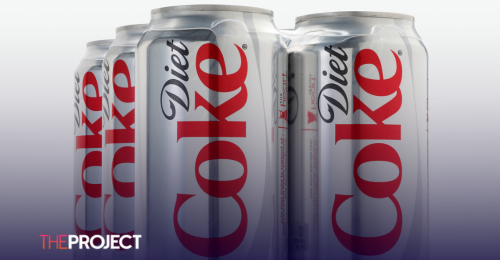A new study by Karolinska Institutet and colleagues from China at Shandong University discovered the link using mice.
Their research aimed to determine how artificial sweeteners such as aspartame impacted the animals.
If you’re unfamiliar with aspartame, it is an artificial sweetener most commonly found in diet soft drinks like Diet Coke and Sprite Zero.
The study took 12 mice, who were then separated into two groups.
One group was fed a high-fat, high-cholesterol diet containing 0.15 per cent aspartame, which is double the amount allowed in human beverages.
The other group was fed a diet containing 15 per cent regular sugar.
The mice were fed their respective diets over 12 weeks.
At the end of the experiment, researchers discovered that the mice fed aspartame showed more atherosclerosis in the aorta, the largest artery in the body, than the other group of mice.
They also showed higher insulin levels, often associated with type 2 diabetes.
While the study did show that the mice used were more prone to developing atherosclerosis, it remains unknown how aspartame could impact humans.
Research lead and professor at the Department of Microbiology at Karolinska Institutet, Yihai Cao, said: “We show that aspartame consumption stimulates insulin release and contributes to atherosclerosis in mice, and which molecules are involved,”
“It’s just an animal study, but we think the results may also be relevant for humans because we see that aspartame affects insulin release in monkeys as well.”
“Human studies are rather difficult to conduct because intake of other foods and beverages can result in insulin release. Different individuals may also respond differently because factors such as age, gender and lifestyle can also affect insulin release,” he said.





























